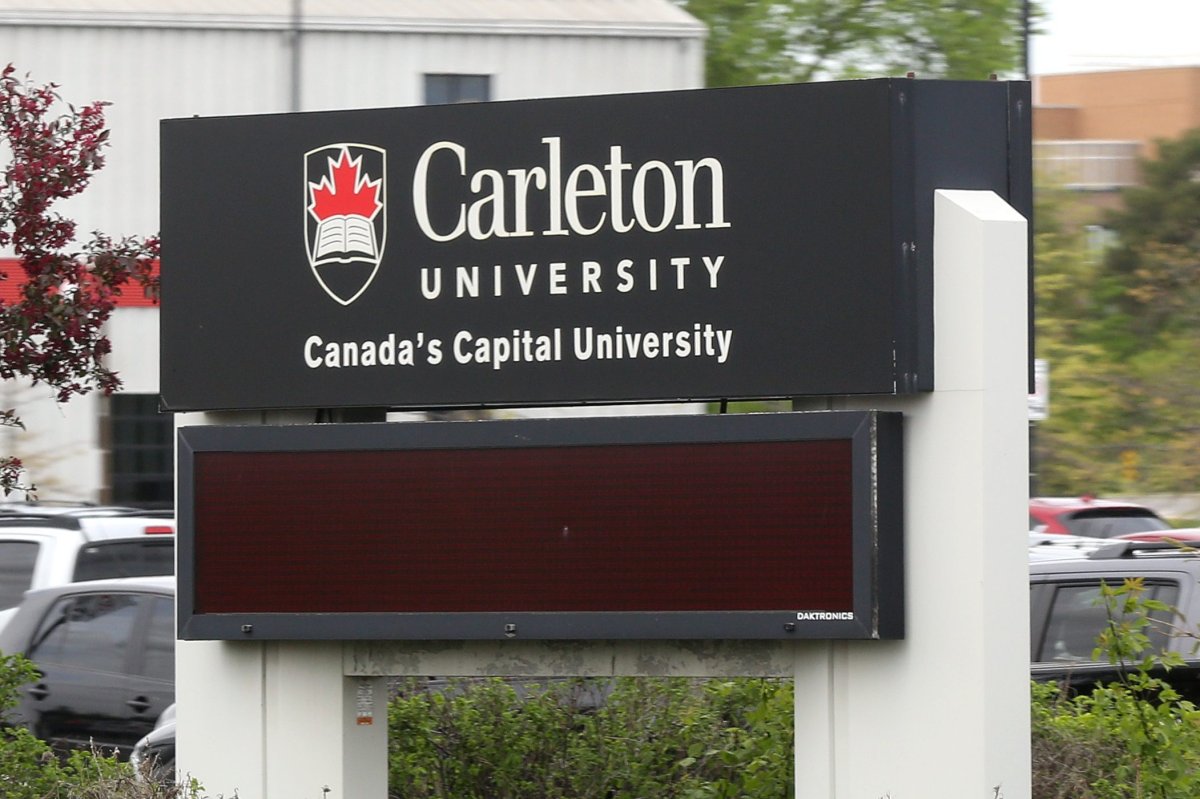Carleton University’s criminology department is severing its ties with police and correctional services, saying it’s time to reform a field that has been “complicit” in breeding institutional racism in the Canadian justice system.

The Institute of Criminology and Criminal Justice (ICCJ) at the Ottawa post-secondary institution released a letter Tuesday announcing its decision to end student placements with the Ottawa Police Service (OPS), the RCMP, the Ottawa-Carleton Detention Centre (OCDC) and the Correctional Service of Canada (CSC).
Additionally, the institute will be creating four annual scholarships of $1,000: two set aside for students who are Black, Indigenous and persons of colour (BIPOC), and two set aside for students actively engaged in initiatives addressing racism and colonialism.
The ICCJ will also be revising its curriculum to offer anti-racism workshops and has struck a faculty committee to identify ways to better support BIPOC students in the criminology department.
Alex McClelland, an assistant professor within the department, says the changes are “a long time coming” for the institute, first started 21 years ago.
While the past few months have seen a surge in support for the Black Lives Matter movement alongside calls to defund the police, McClelland notes that Black and Indigenous advocates have long called for reform to policing and justice in Canada, systems that have often been shown to harm BIPOC victims rather than protect them.

“As criminologists we are acutely aware of the limits of policing and prisons at addressing issues of harm and we are particularly critical of discourses that translate social problems into crime or policing problems,” reads the ICCJ statement.
McClelland says criminology programs across Canada have reinforced institutional racism and colonial perspectives, and have acted as a feeding system for policing and prison systems.
“Criminology itself has been complicit in being an education stream for police and for corrections for many years,” he says.
The ICCJ’s connections with local policing and correctional services resulted in roughly 80 student placements per year.
McClelland says each of the program’s former partners was notified about the ICCJ’s decision in advance of this week’s statement.
Global News reached out to each of the organizations for comment. Those that responded expressed concern that a lack of input from students will affect their abilities to enact meaningful reform.

“Students bring a diversity of views and perspectives and they are an invaluable component of the CSC’s workforce. Their contributions add tremendous value in questioning and shaping our work, practices and policies,” said CSC spokesperson Véronique Rioux.
RCMP spokesperson Cpl. Caroline Duval said in a statement to Global News that the force was “saddened” by the ICCJ decision, and hopes the institute reinstates its relationship with law enforcement.
“The RCMP is also concerned that this may have an adverse impact on the RCMP’s ability to attract students with a criminology background, as well as a Carleton education, to pursue a career in law enforcement,” Duval said.
“These students bring fresh and innovative ways of thinking and an academic lens to the organization that supports our organizational response to complex and emerging policing issues.”
A spokesperson for Ontario’s Ministry of the Solicitor General, which oversees the OCDC, told Global News on Wednesday that the ministry “respects” the ICCJ decision.
“The programs and student placements offered through the partnership provided criminology students with valuable, first-hand insights and experiences to the benefit of the justice sector,” the spokesperson said.
The OPS has not yet responded to request for comment.
Going forward, the ICCJ will offer alternative placements to its students to expose them to different ways they can apply criminology to modern society, such as restorative justice.
Rather than viewing the lack of placements in policing and corrections as a hindrance to students’ careers, McClelland says the new model — equipping them with anti-racism and anti-colonial training — offers them a chance to differentiate themselves.
“We’re really excited about new possibilities and ensuring that our students are well positioned to help transform society,” he says.
Since going public with the decision, McClelland says the school has received positive feedback from students and alumni of the program.
Carleton staff, faculty and alumni sent a letter to university president Benoit-Antoine Bacon at the end of June calling for widespread reforms to how the post-secondary institution supports Black students and professors. The letter also asked Carleton to reexamine its relationship with Canada’s military, policing and correctional services.
These calls included a commitment to hiring more BIPOC faculty, a recommendation McClelland says the ICCJ is implementing as well.
The ICCJ defines itself as a “critical” criminology institute, which examines how the field itself can contribute to problems in society.
McClelland says the ICCJ’s hope is to signal to criminology departments in Canada that the education system itself must evolve and respond to calls for reform.
“It’s time to transform the field in general. We hope we can inspire others to do that,” he says.




Comments